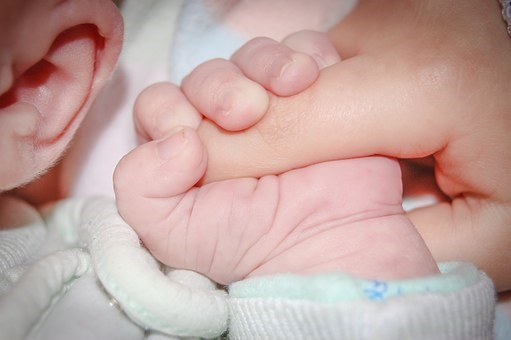
When a baby is born, parents are often anxious to see who the baby resembles – does she have daddy’s eyes, mommy’s nose, grandpa’s ears? Even more questions arise when the baby is born with a medical problem, such as hearing loss. Parents often wonder whether or not they did something that could’ve caused the abnormality, or whether it just happened due to genetic factors.
While
some cases of hearing loss can be traced back to prenatal causes, such as
exposure to an environmental toxin, or maternal use of drugs, other cases have
more of a genetic origin. Sometimes, finding the cause is helpful in determining
the course of treatment. It can also provide valuable information for the
parents in case they decide to have more children in the future.
Congenital versus acquired hearing loss
When
hearing loss, or any other abnormality, is discovered, it can generally be
categorized as either congenital or acquired. Congenital
hearing loss means that it is present at birth, whereas
acquired hearing loss occurs over time. Research has
shown that about 50% of all congenital hearing loss cases arise from genetic
causes, while 25% are from non-genetic factors. The remaining cases stem from
unknown causes.
Genetic hearing loss basics
Genes
are the building blocks of what makes up each individual including their
health, their looks, and their personality. Half of an individual’s genes come
from each parent. The traits that result from this gene combination are
determined by whether or not the genes are recessive or dominant.
- Autosomal
recessive inheritance – Autosomal
recessive hearing loss results from both parents having a
recessive gene for hearing loss. They each
pass on a copy of this “bad” gene to their child. The newborn child experiences
hearing loss because she has two affected
copies of this gene. The parents themselves, however, usually have normal
hearing because they each only have one version
of the recessive mutated gene. - Autosomal
dominant inheritance – Sometimes, only one mutated gene is
needed to cause hearing loss. This is referred to as autosomal
dominant hearing loss. Therefore, if only one parent passes on a
copy of this gene, the child will experience hearing loss. Since the gene is
dominant, the parent who is a carrier will also have some degree of hearing
impairment, with or without the presence of other abnormalities.
Syndromes that cause genetic hearing loss
Sometimes
hearing loss occurs without any other abnormalities being present – this is
known as non-syndromic
hearing loss. Other times, however, the hearing impairment
actually coincides with and is caused by another disorder. A few of the known genetic
syndromes that cause hearing loss include:
- Alport Syndrome
- Goldenhar’s Syndrome
- Norrie Disease
- Stickler Syndrome
- Usher Syndrome
How to diagnose genetic hearing loss
It can
be a time-consuming, and sometimes frustrating, process to identify the genetic
cause of hearing loss, either in an infant or in an older adult. Working with a
team of healthcare practitioners such as a geneticist, audiologist,
otolaryngologist, and/or a genetics counselor can help speed the process. Using
this team-based approach may even reduce the amount of diagnostic testing that
must be done.
In
general, your medical team will have the following roles:
- Otolaryngologist (ENT) – Complete
a physical, go through a detailed medical history with you, and refer you to
other specialists as needed. - Audiologist –
Complete a thorough
hearing evaluation and audiology workup. - Geneticist/ Genetic Counselor –
Utilize testing results from the other professionals to rule out certain
genetic causes, then perform genetic testing as needed to aid in diagnosis.
In summary, working hand in hand with health professionals can help you make informed decisions about the diagnosis and treatment of hearing loss, whether it’s present at birth or occurs later in life. There’s no reason to let it go untreated!

The post Is Hearing Loss Genetic? appeared first on Hear Well – Live Well.
Source: Hear Well-Live Well Blog

